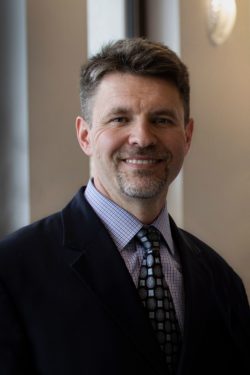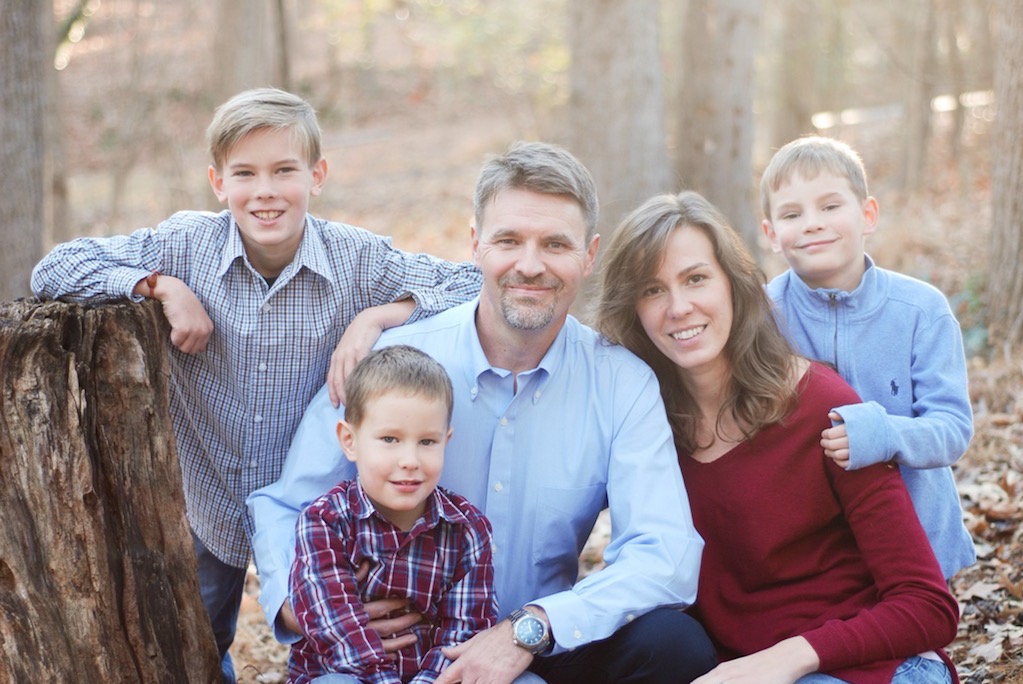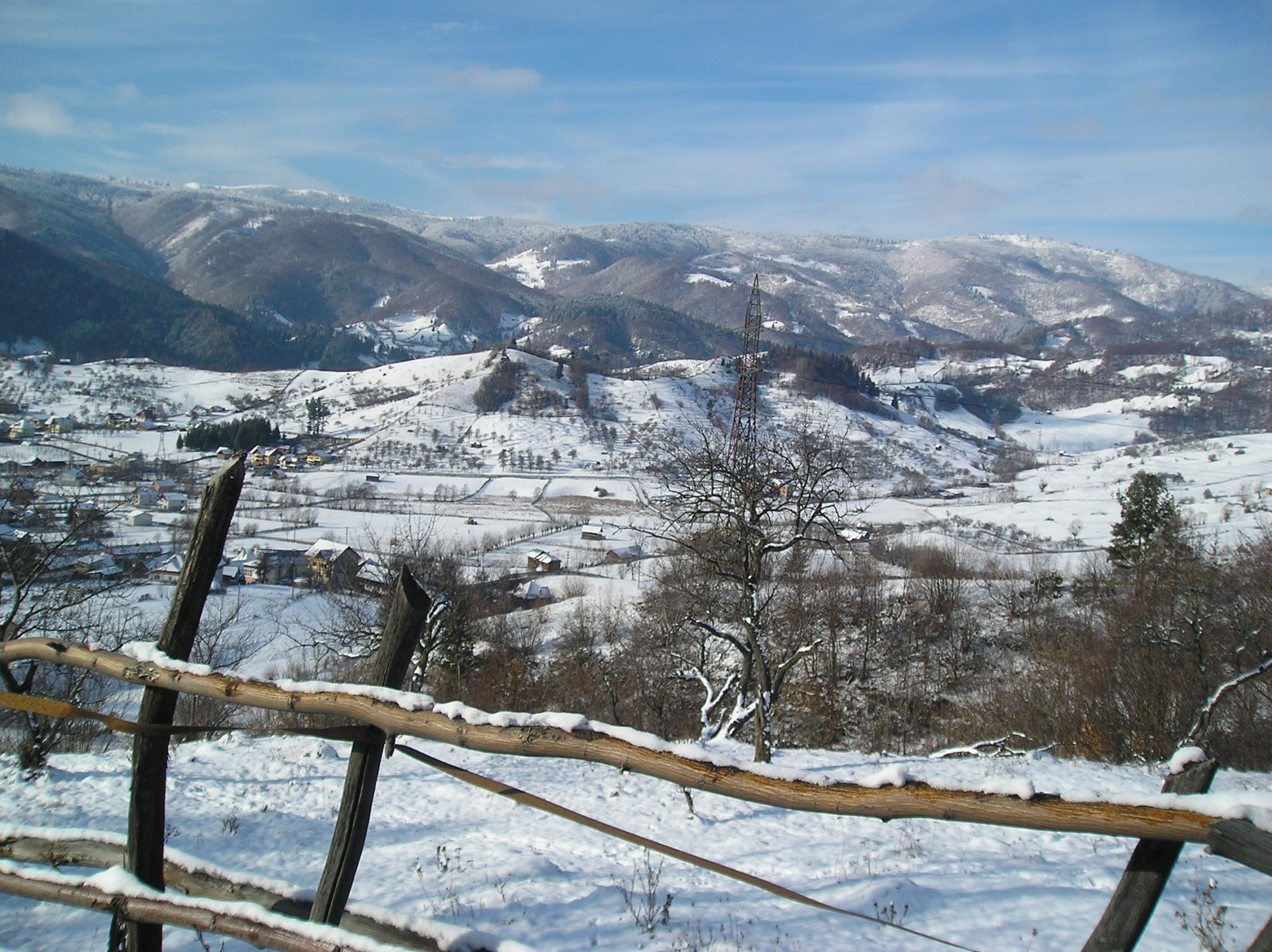Sorin serves as the HeartCry Director in Eastern Europe. He directs ministries in Romania, Moldova, and Ukraine. His responsibilities include overseeing and training our missionaries in evangelism, discipleship, and church planting. Sorin is also planting a church in the Romanian city of Brasov.
Testimony of Conversion
I was born in Romania and to an Orthodox family during the worst part of the Communist regime under Ceausescu. My father’s family owned much land that was confiscated by the Communist authorities in 1959. My grandfather, like many other big owners of land was forced by the secret police to give his land to the state. After several years of misery he committed suicide. The Communist authorities continued to keep their eye on my father as a potential leader of rebellion against the state. These experiences were a shocking trauma for my entire family.
By 1985, I started to attend an underground church in the neighborhood and became convinced of my sinful life. The impact of coming to know the Lord was so powerful that I began to share my faith with other students in my school. Almost one-forth of my classmates began to attend that underground church. The Communist teachers noticed the “religious movement” in our school and began a procedure of persecution against me. In the end, I was expelled from school. My parents attended the same underground church for a short time, but were not saved. They began to put pressure on me to give up attending that church. They were afraid of what the Communists would do. After I was expelled from school, my parents wanted to send me away because I was a shame for them and for the entire family. However, at that moment, the revolution of 1989 took place and the Communist regime fell. I went back to school, but my relationship with my parents had been severely affected.
After Communism, my father became involved in gambling and lost all the savings that he and my mother had worked for over the years. His failure led to depression and alcoholism. His relationship with my mother was destroyed and it led to years of quarreling. Fighting, physical abuse, and hospitalization were the “normal” routine of my family life. They did not divorce, but they lived totally separate lives inside the house. My father hated everyone and everyone hated him. When I repented, my mother also began to hate and reject me. My father turned his hated mostly against my older brother and accused him of very terrible things. It created resentment in my brother that continues even today. My family life was lived out in a climate of rejection and hate between every member of my family.
In the midst of all this turmoil, I found a community of love and acceptance in the underground church. I saw how the Christians, though terribly persecuted by Communists, loved me unconditionally. That environment attracted me. My parents noticed my love for the church and they tried very hard to stop me from attending. For this reason, I began to attend the church in secret and many times I was beaten for not submitting to them.
For a while I struggled with the teaching that I heard in the church and my attitude toward my family. But one day, the Lord spoke to me with a powerful message and saved me. After that, I began to experience a change in my attitude toward all my family. It was not a sudden change, but gradually I learned to not react to their challenges. In stead, I responded in love. I began to develop feelings of compassion for them and I tried to understand their life in a different light. I began to see how God had sovereignly worked out all things to save me from that environment. I began to accept and even be glad with the parents that God had given me, the times in which I was born, and the persecution under Communism. I realized that all these experiences were an important part of my formation as a Christian, and later, as a minister.
I was called by the Lord to become a minister during my last years of high school. I was studying computers and worked for a company, but I also preached in church. God’s calling was clear, and in spite of my initial rejection, I eventually accepted God’s leading in my life. I went to the University to study literature and theology. I received both degrees when I graduated in 1998.
As soon as I finished at the university, I went to the mission field in one of the most difficult area of Romania. There was only one Baptist church in the entire county of over 500,000 people. I planted two churches that are still doing mission work today. It was a wonderful experience that taught me a lot about missions. Since then, I have remained working in missions.
After my church planting experience, I served for a while in the Missions Department of the Romanian Baptist Convention. Then, I began a partnership with the HeartCry Missionary Society. I am now responsible for the mission work of HeartCry in Eastern and Central Europe. We have approximately 35 missionaries, working in some of the driest and most unreached areas of Romania, Ukraine, and Moldova.
In time, we developed a special ministry among the Gypsies in Romania. We have several Gypsy missionaries working and planting churches among the Gypsies. This is a key work because the Gypsy ethnic group is spread out into many countries. They have no country, and are very poor and despised. They live as a nomadic people group and still maintain some tribal ways of life. The largest Gypsy group in Europe is found in Romania.
In addition to supporting missionaries, the HeartCry Missionary Society has a great concern for the theological training of its missionaries and evangelists. For more than ten years, HeartCry has organized training conferences in which missionaries from the Eastern European countries come together to study the Scriptures. At the moment, HeartCry is well known in Romania and Ukraine for the quality of theological training provided by these conferences.
As the years passed, the Lord also challenged us to start a program that goes beyond the training conferences. We came to the understanding that we needed a systematic program by which our partners from Eastern Europe could continue their preparation. In 2006, we established a Theological Training Program for our missionaries and other workers who serve the Lord on the mission field in Eastern Europe. We are now in the third year of this training. I lead this program and we have between fifty and sixty students every year. Some of the students have already graduated from seminary or other theological colleges, and others have graduated from universities. It is not a formal program, but it is an effective program at the level of a regular master’s degree.
We appreciate your desire to know about God’s work in Eastern and Central Europe. Pray for us and for all the mission works of HeartCry.





